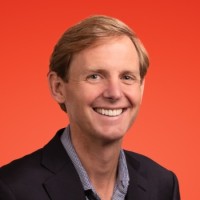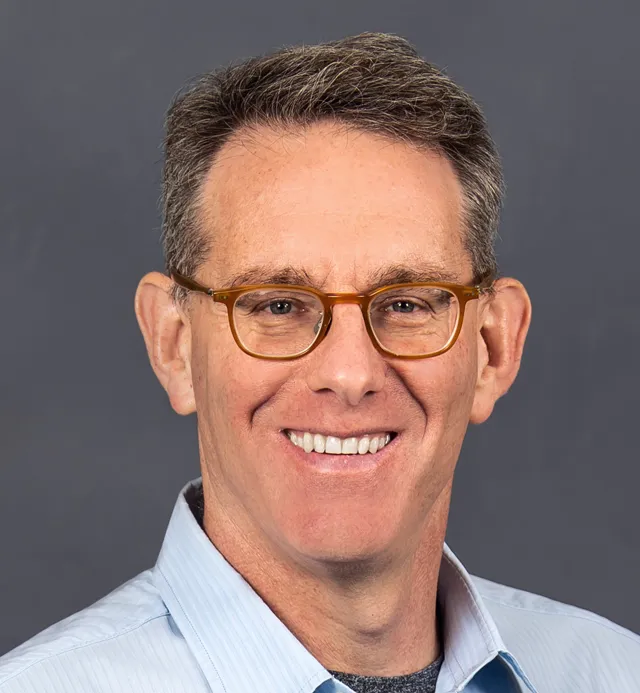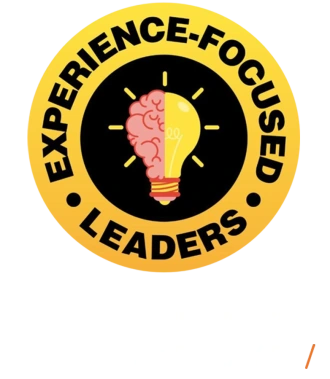View the Podbook™ bellow
Listen to the Podcast Episode on Your Favorite Platform

.svg.png)

From Seed to Success: Mike Maples Jr. on Changing the Future of Startups
.png)
My basic thesis is that 500,000 is the new 5 million and that there will someday be a new category of seed firms that fill that gap. (Mike Maples)
(00:01-06:21)
Mike Maples begins by reminiscing about the early days of his career, explaining how the landscape of startup funding looked very different in 2005. Back then, raising a million dollars was almost impossible, with most startups either getting minimal funds from friends and family or jumping straight to a hefty $5 million Series A. The aftermath of the dot-com crash made it an opportune time for innovation, leading Mike Maples to pioneer the concept of seed investing, providing exactly the funding that entrepreneurs truly needed.
He emphasizes the importance of being ahead of the curve and understanding the needs of founders. Mike Maple's approach was driven by the observation that many entrepreneurs needed just a million dollars to get started, not the $5 million that traditional VCs offered. This realization led to the birth of seed investing, filling the gap between angel investors and venture capitalists.
Mike Maples also shares his fundraising strategy, emphasizing the need for new ideas to initially face skepticism. He believes that if everyone likes your idea from the start, it's probably not innovative enough. He recounts his experiences pitching to potential investors, often having to challenge their preconceptions and highlight the unique gap that seed investing filled. By clearly articulating his vision and addressing objections upfront, he was able to convince investors of the potential and necessity of this new funding approach.
.png)
Turning Believers into Co-Conspirators: Mike Maples Jr. on the Power of Conviction in Startups
.png)
When I think about product market fit, there's a question I like to ask, which is what can we uniquely offer that people are desperate for? And what you find is that people who are desperate, by definition, have tried to solve the problem already. (Mike Maples)
(06:21-14:11)
Mike Maples talks about the necessity of clarity in presenting your startup idea. He warns against the pitfalls of creating "Franken-decks"—overly complex pitch decks designed to preempt every possible objection. Instead, he advises focusing on a concise and compelling narrative that clearly conveys the product's unique value. The goal is to attract a subset of investors who genuinely believe in your vision and are ready to support you wholeheartedly.
Alex Shevelenko adds another layer to the discussion, highlighting the emotional connection investors can have with a startup. He shares a personal story about his backpacking trip through Europe, where he experienced the joy of living like a local—a concept that resonates deeply with the Airbnb model. This story underscores the idea that the best investors are those who have a personal connection to the problem your startup is solving and can envision the future you're proposing.
Mike Maples agrees and elaborates on the concept of co-conspirators—early supporters who are emotionally invested in your vision. These can be early customers, employees, or investors who share your belief in an "aesthetically different future". He compares startups to an optimistic conspiracy theory, where you're looking for like-minded individuals to join your mission, much like the team in the movie "Ocean's Eleven".
The conversation shifts to the idea of desperation as a key indicator of product-market fit. Mike Maples suggests that the best customers are those who have already tried and failed to solve the problem your startup addresses. Their desperation indicates a strong need for your solution, making them more likely to become loyal customers.
.png)

Unlocking Startup Success: Mike Maples Jr. on Breakthroughs and Desperation
.png)
Startup capitalism is a different kind of capitalism. Most companies are concerned, they're persistently compounding, and they have competitive advantages. But startup capitalists have none of those things. They're going from zero to one. (Mike Maples)
(14:11-20:43)
The discussion touches on the idea of "insight breakthroughs," where startups must find a unique perspective on the future that isn't immediately obvious to others. This non-consensus approach ensures that the startup stands out and isn't just replicating what has come before.
Mike Maples talks about the "product-market fit breakthrough", where startups need to determine what they can uniquely offer that people are desperate for. He gives the example of Okta, which started with a broader problem-resolution focus but pivoted to identity management based on customer feedback.
The concept of "pivots" is explored, where startups adjust either their implementation or their target audience to find the right fit. Mike Maples uses a basketball metaphor, describing the insight as a pivot foot that stays grounded while the body (implementation or audience focus) moves to find the best position.
The speakers also discuss the growth breakthrough phase, where startups aim for exponential organic growth through word-of-mouth. Successful startups transfer energy from one breakthrough phase to the next, creating momentum that leads to rapid market dominance.
.png)
Lighthouse Customers and Founder Future Fit
.png)
If you're living in a valid future and you have an authentic match to that future, early believers and co-conspirators are more likely to believe you than the next startup. You're going to attract believers more likely and rapidly. You're going to be right in the first place about what to build. And you're going to attract more people who believe in what you've built. That's a pretty important set of variables for success. (Mike Maples)
(20:43-28:05)
Mike Maples starts by sharing an anecdote from his early career at Silicon Graphics (SGI). He describes how SGI targeted the Hollywood special effects industry, specifically Industrial Light & Magic (ILM), to use their computers for creating groundbreaking computer-generated imagery (CGI) in movies like "Jurassic Park" and "Terminator 2". Mike Maples explains that ILM served as a "lighthouse customer"—a pioneering client whose cutting-edge needs and solutions illuminated the path for others in the industry.
The concept of "lighthouse customers" is crucial for startups. These customers live on the cutting edge, encountering and solving problems that will eventually become mainstream. By working with lighthouse customers, startups can better understand the future needs of their broader market. Mike Maples highlights that these customers help startups refine their products and set industry standards, much like how ILM did for CGI.
Alex Shevelenko reflects on his own experiences, acknowledging a mistake he made by focusing too much on brand recognition rather than the innovative potential of customers. He emphasizes the importance of balancing brand prestige with the ability to learn and innovate from customer interactions.
Mike Maples introduces the idea of "founder future fit", which he describes as the alignment between a founder's background and the future they are trying to create. He gives the example of Justin Kan, who founded Justin.tv (which later became Twitch). Justin's youth and willingness to experiment made him perfectly suited to pioneer the concept of live-streaming, a field that didn't even have a name at the time.
Another example Mike Maples provides is Applied Intuition, a company developing autonomous vehicle simulation software. The founders, with their deep automotive industry experience and connections, were well-positioned to address the needs of big car companies. This "future fit" gave them credibility and insight into the industry's future requirements.
Mike Maples emphasizes that founders who live in the future can see trends and needs before others do, attracting early believers and co-conspirators. This alignment helps them build the right products and rally support more effectively than competitors.
.png)

The Dual Nature of B2B Founders: Balancing Credibility with Contrarianism
.png)
My view is that if you want a breakthrough, you have to deny the premise of the rules. You have to say, “It's axiomatic that the way for me to win is for the future to not be an extension of the present, to not forecast, but instead the future to be radically different.” (Mike Maples)
(28:05-35:02)
Mike Maples emphasizes that true innovation often requires a contrarian mindset. Quoting George Bernard Shaw, he underscores that progress depends on "unreasonable men" who challenge the status quo and envision radically different futures. This mindset is crucial for startups aiming to create new markets and disrupt existing ones.
Alex Shevelenko points out the duality many B2B founders face. On one hand, they need to appear credible and fit within corporate norms to gain trust and execute within established organizations. On the other hand, they must drive urgency and exhibit a certain level of disagreeableness to push their teams toward innovation and escape velocity.
Mike Maples argues that breakthrough ideas inherently disagree with the status quo. Entrepreneurs often make the mistake of targeting big, established markets and unmet needs within those markets, thereby inadvertently playing by the existing rules. Instead, he suggests that true innovation comes from denying these rules and creating entirely new paradigms, as exemplified by the distinctiveness of products like the Tesla Cybertruck.
Innovators will inevitably face resistance from those invested in maintaining the status quo. Mike Maples stresses the importance of being prepared to break some glass and offend those who oppose change, emphasizing that this resistance is a natural part of driving significant innovation.
.png)
Navigating the Future: Founders, Vision, and Strategy in B2B Startups
.png)
What I look for when I fund these startups is the best founder, the best founding team for that specific future that I could ever imagine going after. Because I think that that's a very strong signal. In the early beginnings, products pivot and change a lot. There are a lot of changes and uncertainty. But that founder's future fit gives me a lot of optionality and degrees of freedom for us to be successful no matter what happens. (Mike Maples)
(35:02-42:43)
Mike Maples talks about the importance of founders maintaining discipline and integrity, especially with early customers. He cites the example of Todd McKinnon from Okta, who refused to integrate with on-prem applications despite the potential immediate financial gain. This discipline ensures that the company's strategy remains focused and aligned with its core vision.
Many startups make the mistake of saying yes to customer demands that don't align with their long-term strategy. This can waste valuable resources and attract customers who are not truly aligned with the company's vision, leading to higher churn rates.
Mike Maples introduces the concept of "founder future fit", where the ideal founder embodies the specific future they are trying to create. Different types of founders are suited for different types of innovation. For example, Elon Musk's bold and disruptive approach works for industries like space exploration and electric vehicles, while Todd McKinnon's steady and confident demeanor suits enterprise cloud services.
Successful founders often live in the future they are trying to create. They work with cutting-edge technologies and understand the emerging trends and needs. This deep engagement allows them to build products that are truly innovative and ahead of their time.
Breakthrough ideas cannot follow a set recipe because they involve discovering something new. Instead of following established patterns, successful startups break them. This requires a mindset focused on innovation and exploration.
Alex Shevelenko highlights the importance of bringing innovative ideas from one sector to another. For example, applying advanced marketing communication techniques to employee communications can create a significant competitive advantage. The key is to identify where the future is already being realized and adapt those ideas to new contexts.
.png)

Breaking Patterns: How Radical Ideas Create New Markets
.png)
Category design, in my view, is creating a new container in someone's mind. And it's better if you do that because you get to define the rules of competition in that container. So Steve Jobs did this with the iPod, and then he did it again with the iPhone, then he did it again with the iPad. (Mike Maples)
(42:43-51:36)
"Dwellers of the future" are the people or organizations that are already operating in a way that aligns with the future vision of your product. These early adopters are crucial because they are desperate for innovative solutions and can help validate and refine your product.
Inspired by Chris Lochhead, the concept of category design is about creating a new mental container in people's minds. Instead of competing within an existing category, successful startups like Tesla and Apple create entirely new categories. This allows them to set the rules and avoid direct comparisons with existing products.
Startups should strive to be so unique that they can't be directly compared to existing products. This approach helps them stand out and attract attention. For instance, Apple didn’t just make a better smartphone; they redefined what a smartphone could be with the iPhone.
While creating a new category, it's also essential to connect with unmet needs in adjacent categories. For example, the iPhone appealed to existing smartphone users by offering a significantly better experience, thus attracting a ready audience while redefining the category.
Successful startups must have the courage to present themselves as radically different. This uniqueness is what drives significant impact and creates loyal followers who are excited about the new vision.
The discussion is filled with examples of startups that successfully broke patterns, such as Apple with its iPod, iPhone, and iPad, Tesla with its electric cars, and niche products like Five Hour Energy and Gorilla Glue, which created new markets by offering something fundamentally different.
.png)
Purchase Mike Maples' book Pattern Breakers with a BOGO discount HERE.
Check the episode's Transcript (AI-generated) HERE.
Other Episodes

Godard Abel | CEO of G2
S 01 | Ep 6 Where You Go for Software: Reach Your Peak


Dean Stocker | CEO of Alteryx
S 01 | Ep 8 Turning Your Customers Into Your Biggest Champions


Peter Fader | Co-Founder of ThetaCLV
S 01 | Ep 10 Turning Your Marketing Into Dollars

Author

Experience-focused Leaders is the #1 Multimedia Podcast! We talk to senior business & tech leaders about the experiences that move forward organizations, customers and society at large. True to form, we mix audio, video, web and eBook formats to turn these authentic conversations into personalized nuggets you'll remember & use.



.png)
